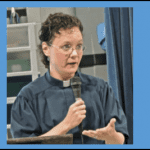The celebration of the 500th anniversary of the Protestant Reformation is over. Now what? It’s time for an ‘Eco-Reformation’!
The strains of “A Mighty Fortress” have faded and the images of Luther nailing the 95 Theses to the door in Wittenberg have been shelved for another year. On October 29, 2017, Protestant churches around the world marked the 500th anniversary of the Reformation by wearing red, singing Luther’s hymns, hosting special lectures and forums, and holding joint services of reconciliation with their Catholic neighbors. This past year has been a time of looking back on the significance of that era, with a critical assessment of the good and not-so-good fall-out from that tumultuous period (persecution of Anabaptists and the 30 Years War, not so good).
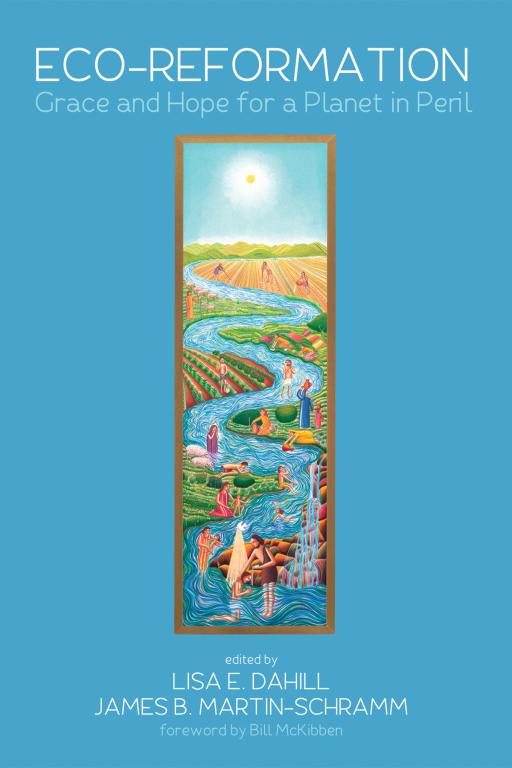
The “Next Reformation”
Now it’s time to look ahead to “the next reformation.” Brian McClaren has written an excellent piece contrasting the differences between the historic Reformation, and the reformation that’s needed for the next 500 years. What resonated for me as an ecotheologian was his recognition of the need to address the ecological crisis of this planet:
The next reformation is coming to be during a struggle not to defeat or oppress other religions, but to learn to live peaceably as neighbors, and more than neighbors: allies … allies in a struggle against forces that threaten all of human existence – including environmental degradation due to greed and ignorance, the proliferation of weapons – especially weapons of mass destruction, and the growing gap between super-rich elites and everyone else. . . . The last reformation argued which church had the best guarantee to evacuate souls to heaven after death. The next reformation seeks to build a movement to protect God’s beloved creation, including all people (no exceptions), from human sin before death.
To help us move into this next reformation, sixteen Lutheran scholars have written a book about the need for an ecological reformation, and it should be required reading for all Christians – Protestant and Catholic alike.
Eco-Reformation: Grace and Hope for a Planet in Peril
Eco-Reformation: Grace and Hope for a Planet in Peril contains important theological resources as well as fresh insights for the critical task of healing our planet. As David Rhoads declares in the opening chapter:
We need a new Copernican revolution: from being human-centered to being creation-centered; from focusing on God’s relationship with humans alone to focusing on God’s relationship with all of creation; from fostering the extreme individualism of our culture to fostering the common good of the planet. We humans need to see ourselves embedded in the rest of nature and find our proper place and role in it – both our responsibilities and our limitation. (4-5)
Building bridges between faith and science
Finding our proper place means learning from and working alongside science to understand the natural world. Every author in Eco-Reformation either implicitly or explicitly makes the case that the divisions between science and religion are not only unhelpful, they are downright harmful when it comes to finding partners for tackling climate change, pollution, eco-racism, species extinction, and the nexus between socioeconomics and environmental issues. Ernest L. Simmons is one of many authors who make the case for bridging the gap between Christianity and science. As a professor at a Lutheran college, he insists that “all education is environmental education.” He calls for schools in the liberal arts tradition to form critical, courageous citizens for global/climate and local ecological leadership that engages the scientific and social complexities of our time. Similarly, Lisa E. Dahill describes a process of “rewilding” Christian spirituality that involves healing the rift between religion and science so that each may be in conversation with, and enhanced by, the other.
Drawing on the Protestant Reformation and Lutheran theology
All the authors use the paradigm shift of the 16th century Protestant Reformation to frame the shift that is needed today for a clean-energy future and an environmentally-sustainable reformation of global systems. Bill McKibben, writer of the book’s foreword, insists that we must “switch from [a] world of centralized energy to a distributed model that depends on local sun and wind. It’s not entirely different from the move from a central church to the localized autonomy of Protestantism,” (ix).
To this end, Norman Habel’s contribution was to write a new set of critiques (á la Martin Luther) of our contemporary society and its power-structures: “Ninety-Five Eco-Theses.” Meanwhile, Wanda Deifelt’s essay frames the environmental question within the concepts of the theology of the cross and Creation as God’s “mask.” And Terra Rowe’s chapter critically examines the way the Lutheran concept of “free grace” has been commodified by the capitalist economy.
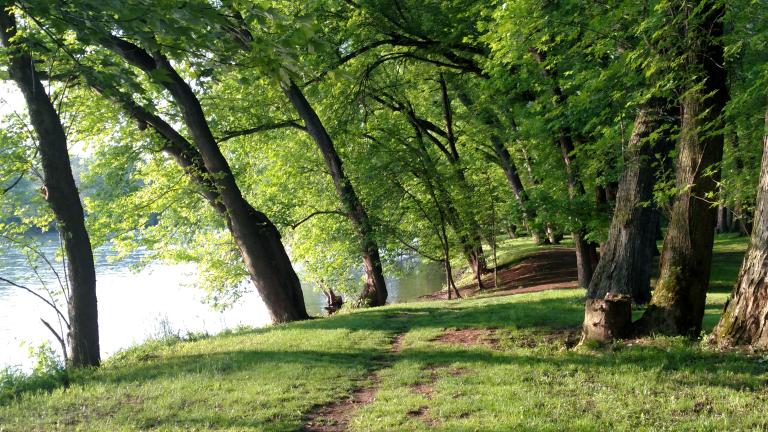
Another step on the road to reconciliation between Lutherans and Catholics
The essays also reflect the ongoing reconciliation process between Lutherans and Catholics. The two former ecclesiastical enemies have already made great strides toward greater visible unity through the joint document released in 2015 entitled “Declaration on the Way: Church, Ministry and Eucharist.” Eco-Reformation could serve as further stimulus for finding common ground – literally the ground of this planet which both denominations have taken bold steps to declare sacred and worthy of environmental protection.
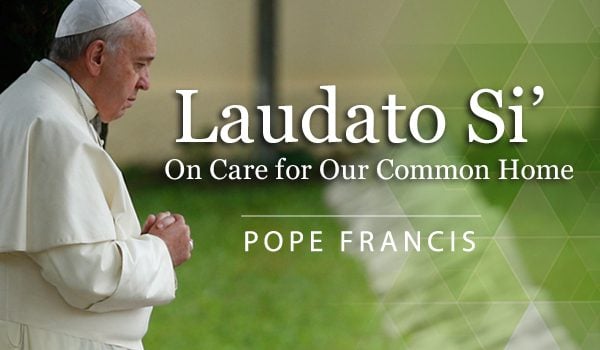
In fact, of the essays in this volume, six of them – fully one-third – contain references to Pope Francis’ encyclical Laudato Sí, the papal letter concerning ecology and caring for God’s Creation. H. Paul Santmire, in his essay “The Two Voices of Nature,” celebrates the fact that “all revisionist Lutherans can now work in a new ecumenical partnership with the Church of Rome, in a way that would have probably shocked Luther himself,” (74).
This is not to say that the authors in this volume take an uncritical stance in their eco-ecumenical engagement, however. Terence Fretheim notes, for example, that the encyclical relies on traditional images of God, which are neither true to the biblical text, nor helpful in deconstructing paradigms of power and control.
Tackling the “rough terrain”
In fact, none of the authors shy away from entering what Cynthia Moe-Lobeda calls “rough terrain” that necessitates critiques of certain aspects of religion that have, in fact, contributed to our ecological crisis. Anthropocentric theology, for instance, is often named as the source of a worldview that privileges human “progress” over environmental sustainability. Scholars such as Larry Rasmussen also shine a light on the ways in which American culture, neoliberal capitalism, and the abuses of rights-depriving governments have led to our current ecologically-bereft state.
How could your church use this book?
Congregations may consider using Eco-Reformation for Lenten small group studies, reading two or three chapters a week over the course of five weeks. For instance, Robert Saler’s chapter on Joseph Sittler would pair well with James Martin-Schramm’s provocative essay on Dietrich Bonhoeffer in light of climate change. He notes that Bonhoeffer’s call for direct political action by the church against the Nazi state is exactly what is necessary for combatting the forces that drive climate change today. In light of President Trump’s decisions to roll back environmental regulations and withdraw the U.S. from the Paris Climate Accord, civil disobedience of the kind Bonhoeffer practiced may become even more necessary.
Preach the Eco-Reformation!
Preachers can draw on Eco-Reformation for a sermon series for Epiphany, Lent, or during the season of Pentecost. Barbara Rossing’s essay is specifically geared to preaching about apocalyptic texts during this time of ecological crisis. She urges preachers to “open up the space between denial and despair” while lifting up the biblical image of the tree of life as one of healing and renewed community (151 – 157). In fact, trees are a recurring theme throughout this collection – from the “tree” of the crucifixion, to Wangari Matthai planting trees in Africa where blood and destruction had reigned. This last is highlighted in Victor Thasiah’s powerful essay describing the role of the Lutheran church in Rwanda helping to restore democracy through a reforestation program after the genocide of the 1990’s.
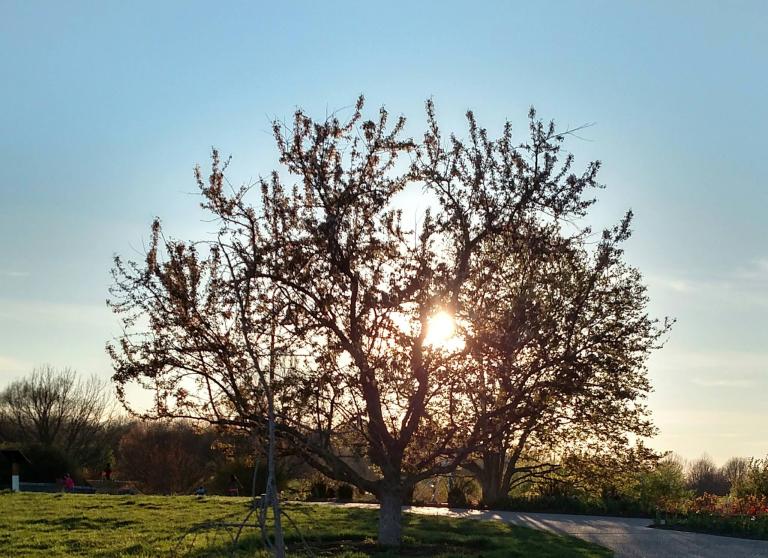
Eco-Reformation contains leaves for the “healing of the nations” (Rev 22:2). From Benjamin Stewart’s chapter reconsidering the liturgical role of water in the eco-reformation, to Aana Marie Vigen’s essay reminding us of the importance of addressing race issues as they pertain to environmental justice, this book empowers our faith to engage in action on behalf of this planet and those most vulnerable. The essays in this book can be viewed as ecotheological “antibodies” within a system that is suffering a sickness unto death.
Eco-Reformation: Grace and Hope for a Planet in Peril is edited by Lisa E. Dahill and James B. Martin-Schramm. Cascade Books, Wipf and Stock Publishers, 283 pp., $36.00
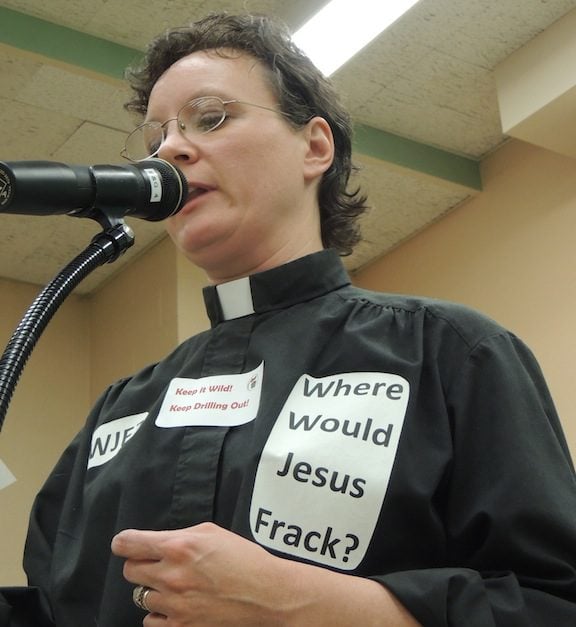
Leah D. Schade is the Assistant Professor of Preaching and Worship at Lexington Theological Seminary (Kentucky) and author of the book Creation-Crisis Preaching: Ecology, Theology, and the Pulpit (Chalice Press, 2015).
Twitter: @LeahSchade
Facebook: https://www.facebook.com/LeahDSchade/.
Read more of Leah’s ecotheological book reviews:
Dar Tellum: 1970s Children’s Book about Climate Change
Flight Behavior and Resisting Structural Evil, a Joint Book Review


